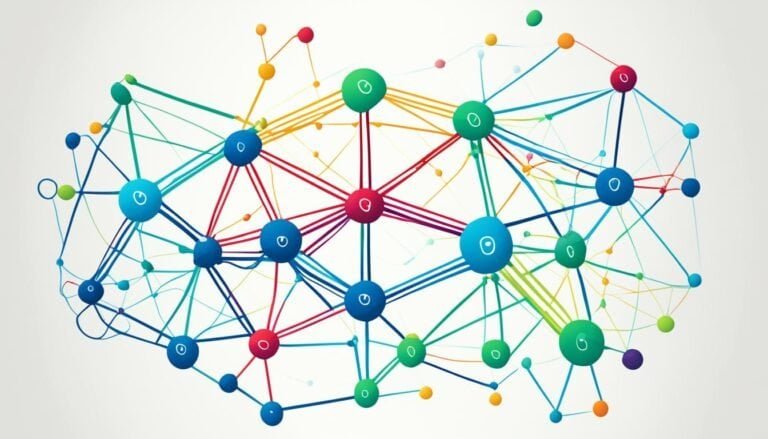What Is Cultural Awareness?
Imagine standing at the intersection of varied traditions, values, and beliefs. Cultural awareness is akin to holding a kaleidoscope, each turn revealing a new pattern of understanding. It's a lens through which you can navigate the complexities of our diverse world, fostering respect and empathy.
But what exactly does it entail? Stay tuned to unravel the layers of significance behind cultural awareness and its profound impact on personal growth and societal harmony.
Key Takeaways
- Cultural awareness fosters inclusivity and mutual respect in diverse societies.
- It enhances communication, reduces misunderstandings, and bridges cultural gaps.
- Developing cultural competence allows recognition and acceptance of diverse beliefs and values.
- Celebrating differences while highlighting commonalities fosters unity and cooperation.
Importance of Cultural Awareness
Understanding the significance of cultural awareness is essential for fostering inclusivity and promoting mutual respect in diverse societies. Cultural competence, which involves the ability to interact effectively with people from different cultures, plays a pivotal role in building relationships and bridging gaps between individuals of varied backgrounds. Developing intercultural understanding allows for the recognition and acceptance of diverse beliefs, values, and behaviors, leading to a more harmonious coexistence within communities.
Cultural competence enables individuals to navigate through cultural differences with sensitivity and empathy, enhancing communication and reducing misunderstandings that may arise due to cultural nuances. By embracing intercultural understanding, people can move beyond stereotypes and biases, appreciating the richness that diversity brings to society. It also fosters a sense of unity and cooperation by highlighting commonalities while celebrating differences. Essentially, cultural awareness serves as a foundation for creating a more inclusive and respectful environment where individuals can thrive and interact positively across cultural boundaries.
Benefits of Understanding Cultures
To fully appreciate the significance of cultural awareness, exploring the benefits of understanding various cultures is imperative for fostering inclusivity and harmonious interactions within diverse communities. Developing cultural competence through understanding different cultural norms, values, and practices allows individuals to navigate multicultural environments with respect and sensitivity. By embracing a global perspective, one gains a deeper understanding of the interconnectedness of societies, leading to enhanced collaboration and cooperation across borders.
Cultural competence enables individuals to communicate effectively with people from diverse backgrounds, bridging potential language and cultural barriers. This understanding fosters mutual respect and appreciation for different ways of life, creating a more inclusive and tolerant society. Having a global perspective broadens one's worldview, fostering empathy and open-mindedness towards individuals with differing beliefs and traditions.
The benefits of understanding cultures extend beyond individual growth to positively impact communities and societies at large, promoting unity and cooperation in an increasingly interconnected world.
Impact on Communication
Regularly practicing cultural awareness enhances your ability to communicate effectively across various cultural boundaries, fostering mutual understanding and respect. By developing cultural awareness, you gain insights into different communication styles, norms, and preferences, leading to improved understanding in cross-cultural interactions. This increased understanding allows you to navigate potential misunderstandings more efficiently and adapt your communication approach to suit the cultural context. Effective interactions are facilitated when you are aware of cultural nuances such as body language, tone of voice, and indirect communication styles. Misinterpretations are minimized, and relationships are strengthened through respectful and culturally sensitive communication.
| Cultural Awareness Benefits | Impact on Communication |
|---|---|
| Promotes empathy and respect | Enhances understanding of communication styles |
| Reduces misunderstandings | Helps navigate cultural differences efficiently |
| Improves cross-cultural relationships | Enables adaptation of communication approaches |
| Fosters mutual understanding | Facilitates effective interactions |
| Enhances cultural sensitivity | Minimizes misinterpretations |
Enhancing Cross-Cultural Competence
Enhance your cross-cultural competence by actively engaging in immersive cultural experiences and seeking out opportunities for meaningful interactions with individuals from diverse backgrounds. Cultural competency is the ability to understand, communicate with, and effectively interact with people across different cultures. Developing cultural competency involves being open-minded, empathetic, and respectful towards diverse perspectives and practices.
One way to enhance your cross-cultural competence is through improving your intercultural communication skills. This involves not only being able to effectively convey your thoughts and ideas to individuals from different cultural backgrounds but also being able to listen actively and understand their viewpoints. By engaging in intercultural communication, you can learn to navigate cultural differences, avoid misunderstandings, and build strong relationships with people from diverse cultures.
Remember that enhancing your cross-cultural competence is an ongoing process that requires continuous learning and self-reflection. Embrace opportunities to broaden your cultural knowledge and challenge your own assumptions and biases to become a more culturally competent individual.
Cultural Awareness in the Workplace
Improve workplace dynamics by fostering cultural awareness among team members through open dialogue and mutual respect for diverse perspectives and practices. Workplace integration and cultural competency are crucial for creating a harmonious and productive work environment. When individuals respect and understand each other's cultural backgrounds, they can collaborate more effectively and leverage their unique strengths.
Here are four key aspects to ponder for enhancing cultural awareness in the workplace:
- Diversity Inclusion: Embrace and celebrate the differences in cultural backgrounds, beliefs, and practices among team members.
- Organizational Culture: Recognize how cultural values and norms influence the overall organizational culture and shape interactions within the workplace.
- Communication Strategies: Implement communication strategies that are inclusive and sensitive to diverse cultural preferences to secure effective dialogue.
- Training and Development: Provide ongoing training and development opportunities to enhance employees' cultural awareness and competency, fostering a more inclusive and understanding workplace environment.
Strategies for Developing Cultural Awareness
To enhance your cultural awareness, you can explore cross-cultural communication techniques and participate in diversity training programs.
By understanding different communication styles and cultural norms, you can improve your interactions with individuals from diverse backgrounds.
These strategies offer valuable insights into developing a more inclusive and culturally sensitive approach in various settings.
Cross-Cultural Communication Techniques
To foster effective cross-cultural communication, utilizing diverse communication strategies is essential for enhancing cultural awareness in professional and personal interactions. When engaging in cross-cultural communication, consider the following techniques:
- Active Listening: Focus on understanding the speaker's perspective without judgment.
- Nonverbal Communication: Be mindful of body language and gestures that may have different meanings in various cultures.
- Adaptability: Flexibility in communication style and approach to accommodate cultural differences.
- Empathy: Show empathy towards others' cultural backgrounds and experiences to build rapport and mutual understanding.
Diversity Training Programs
When considering strategies to develop cultural awareness, exploring diversity training programs can provide valuable insights and skills for managing cross-cultural interactions effectively. These programs offer numerous benefits, such as enhancing cultural competency by educating individuals on different cultural norms, values, and communication styles.
By participating in diversity training, individuals can gain a deeper understanding of how cultural awareness impacts workplace dynamics, leading to improved teamwork, communication, and overall job satisfaction. Additionally, these programs help individuals navigate complex multicultural environments with sensitivity and respect, ultimately fostering a more inclusive and harmonious work environment.
Through developing cultural awareness via diversity training, individuals can contribute to creating a more collaborative and understanding workplace culture that values diversity and promotes mutual respect among colleagues.
Building Cultural Sensitivity
When developing cultural sensitivity, it's important to cultivate respect for differences, nurture open-mindedness towards others, and embrace diverse perspectives.
By acknowledging and valuing the uniqueness of various cultural backgrounds, you can foster an environment of inclusion and understanding.
This approach allows for meaningful interactions that transcend cultural boundaries and promote harmony among diverse individuals.
Respect for Differences
Cultivating cultural sensitivity involves embracing and appreciating the diverse perspectives and traditions of others. To truly respect differences and build cultural sensitivity, consider the following:
- Celebrating Diversity: Acknowledge and honor the uniqueness of each culture.
- Fostering Inclusion: Create environments where everyone feels valued and included.
- Promoting Harmony: Endeavor to create peaceful interactions and relationships among diverse groups.
- Fostering Understanding: Seek to understand the beliefs and practices of others to cultivate empathy and mutual respect.
Open-Mindedness Towards Others
To deepen your cultural sensitivity, embrace open-mindedness towards others by actively seeking to understand and appreciate diverse perspectives and traditions.
Cultivate cultural empathy by putting yourself in the shoes of individuals from different backgrounds, acknowledging and respecting their unique experiences.
Vitality plays a significant role in fostering a global perspective, allowing you to accept and celebrate the richness of diversity.
By being open-minded, you can break down barriers that divide people and build connections based on mutual understanding and respect.
Embracing a mindset of acceptance enables you to navigate various cultural landscapes with ease and grace, promoting harmony and inclusivity.
Embracing Diverse Perspectives
In understanding diverse perspectives, you must actively engage with and appreciate the varied viewpoints and experiences of different cultures. Developing cultural empathy and embracing global perspectives is essential in fostering an inclusive mindset and promoting diverse thinking.
- Cultural Empathy: Endeavoring to understand and share the feelings of individuals from different cultural backgrounds.
- Global Perspectives: Recognizing and valuing the interconnectedness of cultures on a worldwide scale.
- Inclusive Mindset: Embracing the richness that diversity brings and ensuring all voices are heard and respected.
- Diverse Thinking: Encouraging creativity and innovation through the integration of various cultural perspectives into problem-solving and decision-making processes.
Challenges in Cultural Awareness
Exploring the complexities of cultural awareness presents individuals with a myriad of challenges that require open-mindedness and empathy. Cultural sensitivity challenges arise when individuals struggle to understand or respect different cultural norms and practices. This can lead to cross-cultural misunderstandings, where actions or words unintentionally cause offense or confusion.
Additionally, cultural competency barriers hinder one's ability to effectively navigate diverse cultural environments. Lack of knowledge about different cultural backgrounds, traditions, or values can impede meaningful interactions and relationships with individuals from varied backgrounds.
Intercultural communication hurdles further compound these challenges, as differences in communication styles, non-verbal cues, and language barriers can create misunderstandings and hinder effective dialogue. Overcoming these obstacles demands a willingness to learn, listen, and adapt, fostering a deeper understanding and appreciation for the richness of diverse cultures.
Cultural Awareness in Education
Exploring the domain of cultural awareness in education requires a deep understanding of how diverse cultural backgrounds influence learning environments and student experiences. In today's multicultural classrooms, being culturally aware is essential for creating inclusive and effective educational spaces. Here are some key aspects to take into account:
- Student Engagement: Cultural awareness in education plays a crucial role in fostering student engagement. By incorporating diverse perspectives, educators can make learning more relevant and meaningful for all students, enhancing their motivation and participation in the classroom.
- Classroom Dynamics: Understanding cultural nuances can have a profound impact on classroom dynamics. Different cultures may have varying communication styles, learning preferences, and approaches to collaboration. Being culturally aware allows educators to navigate these differences effectively, promoting a harmonious and productive learning environment.
- Curriculum Adaptation: Cultural awareness prompts educators to adapt their curriculum to be more inclusive and representative of diverse cultures. This adaptation can help students see themselves reflected in the material, fostering a sense of belonging and cultural pride.
- Conflict Resolution: Cultural awareness equips educators with the tools to address conflicts arising from cultural misunderstandings. By promoting open dialogue and empathy, educators can effectively resolve conflicts and promote respect and understanding among students from different cultural backgrounds.
Cultivating Global Mindset
To cultivate a global mindset, you must embrace diverse perspectives, allowing yourself to see the world through different lenses.
Building cross-cultural connections enables you to bridge gaps and foster understanding across borders.
Developing empathy for others is key in cultivating a global mindset, as it encourages you to appreciate the unique experiences and challenges faced by individuals from various backgrounds.
Embracing Diverse Perspectives
By actively engaging with a variety of cultural perspectives, you can develop a broader understanding of the world and cultivate a global mindset. Embracing diverse perspectives not only enriches your own worldview but also fosters mutual respect and appreciation for different cultures.
Here are four essential ways to enhance your cultural awareness:
- Participate in diversity celebration events to learn about various traditions and customs.
- Engage in cultural immersion experiences to deeply understand different ways of life.
- Attend inclusivity training sessions to enhance your sensitivity towards diverse groups.
- Adopt a global perspective by actively seeking out information about different cultures and societies.
Building Cross-Cultural Connections
Fostering cross-cultural connections is essential for developing a global mindset and embracing diversity effectively. Cultural exchange programs offer opportunities to engage with individuals from different backgrounds, breaking down stereotypes and promoting mutual understanding.
Intercultural friendships play a vital role in building empathy and respect for diverse perspectives. Language immersion is another powerful tool for connecting with people from various cultures, enabling you to communicate more effectively and appreciate different linguistic nuances.
Developing Empathy for Others
Cultivating a global mindset involves developing empathy for others, an essential aspect of fostering cross-cultural understanding and unity. Empathy training plays a critical role in enhancing one's ability to connect with people from diverse backgrounds. By actively engaging in empathy training, individuals can learn to appreciate different perspectives and experiences, leading to more meaningful interactions.
Cultural empathy allows you to step into someone else's shoes and understand their cultural norms, values, and traditions. It enables you to navigate cross-cultural interactions with sensitivity and respect. Developing empathy for others is a continuous process that requires active listening, open-mindedness, and a genuine willingness to learn from those around you.
- Practice active listening skills
- Seek to understand before being understood
- Embrace cultural differences
- Show empathy through actions
Conclusion
As you navigate the complex web of cultures around you, remember the power of cultural awareness. By understanding and respecting different beliefs and traditions, you can endeavor to bridge divides, foster connections, and build a more inclusive world.
Embrace the challenges and opportunities that come with cultural diversity, and aim to cultivate a global mindset that transcends boundaries. In a world that's more interconnected than ever, cultural awareness isn't just a skill – it's a necessity for meaningful communication and collaboration.







